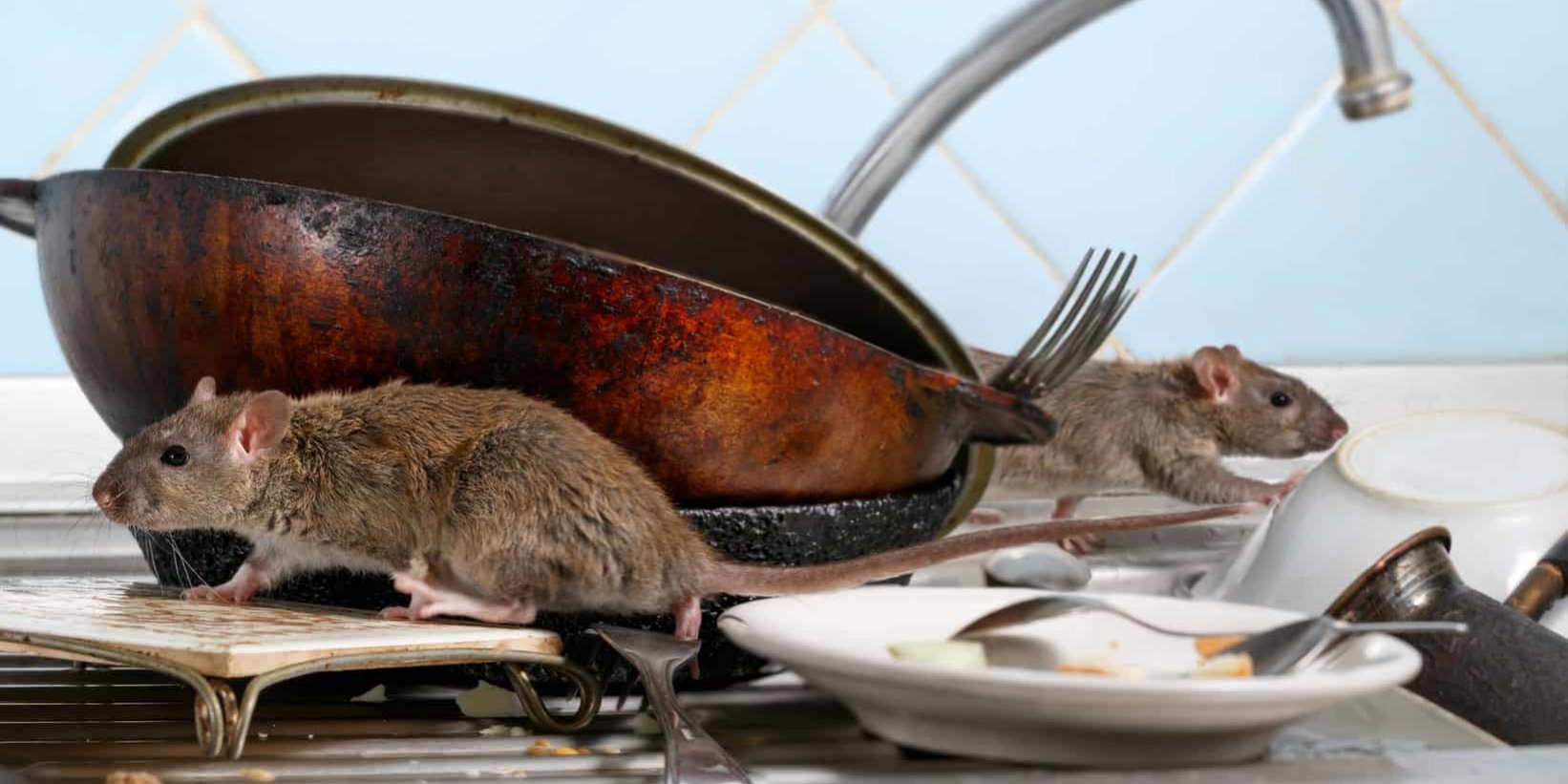By their very nature, rats are scavengers. These rodents are also armed with a keen sense of smell. As a consequence, kitchens in homes and restaurants prove to be particularly attractive targets for rats. As a consequence, there is a number of different facts and tactics you need to understand when it comes to the prospect of a rat in your kitchen.
How and Why a Rat Accesses Your Kitchen
A rat is not at all likely to establish your kitchen as its primary hub. In other words, a rat is not likely to build its nest in your kitchen. Nesting in a cupboard certainly is a possibility, but not a probability because of the commotion normally occurring in a kitchen during the day when a rat tends to slumber.
Rats are generally nocturnal animals and use the cover of night to forage for food. Thus, rats are more likely to visit your kitchen during the night when the space is likely to be fairly empty save for visits by you and your family to nab a snack.
The fact that a rat may be using your kitchen as foraging grounds rather than a place to nest doesn’t make a rodent’s present any less untenable. For example, when foraging, rats will also defecate and urinate in your kitchen, even in food items. Rodent feces and urine oftentimes is the reason why a disease like salmonella is spread to humans through food items.
An Ounce of Prevention Is Worth a Pound of Rat Infestation
Before diving into a discussion of some tactics you need to employ to keep a rat out of your kitchen in the first instance, an important point must be made. You may experience a situation in which you have a solitary rat invading your kitchen. What is far more likely, however, is that there are multiple rats infesting your residence, many of which will make pilgrimages to your kitchen in search of food. If one rat is able to get into your house and build a nest in the walls, in the attic, or elsewhere, others most definitely will follow. Moreover, rats breed like… rats. They reproduce with great speed and in significant numbers.
A very basic step you must take to prevent rats from entering your home and your kitchen in the first instance are to do your best to plug any holes or other potential entryways into the premises. This really represents a two-step process, unless you are absolutely certain there are no rodents in your home.
Begin the blocking process by sealing holes in the interior of your home. For example, if there exist small holes in baseboards or elsewhere in walls leading into your kitchen, plug those first. By taking this approach, you are cutting off a rat’s food supply inside your home (if there exists a rodent in your home that you’re not aware of). As a consequence, the likelihood is enhanced that a rat will exit via whatever exterior portal the rodent used to enter the premises in the first instance.
After some time has passed and you’re as certain as you can be that there are no rats on the premises, you can then seal the exterior holes. The reason you need to undertake this two-step process is that you do not want to do something like trap rats within the walls of your home where they will eventually die. The stench of such an occurrence can be profound, pervasive, and long-enduring. In other words, you’ll be creating a special kind of malodorous hell in your home.
Steel wool oftentimes is recommended as a decent way of blocking a rat from entering a kitchen or a home more generally. In fact, the best possible sealant is properly cured concrete. A rat cannot chew through concrete that has been cured properly.
Other preemptive strategies you will want to employ include:
- Keep foodstuffs in sturdy, tightly sealed containers. A rat has the easy ability to gnaw through cardboard, thinner plastic, and other common types of packages used for food items. Thus, and by way of example, you will want to take steps like storing cereal in a tin or glass container with a tight-fitting top. Breadboxes exist for some very good reasons; consider adding one to your kitchen.
- Keep trashcans in the house and garbage cans outside your residence rightly sealed.
- Do not keep food in your pet’s bowl indefinitely. When your furry family member finishes a meal, don’t leave extra food in the bowl for your cat or dog to munch on throughout the day. You’re inviting another muncher into the premises in the form of a rat.
- More globally, eliminate shrubbery or other plants from directly next to your residence. Consider developing a gravel perimeter of about two feet to encircle your residence as a barrier to rodents. Rats and mice will be far less inclined to cross such an exposed expanse to enter your home.
- Do not keep piles of wood near your home.
Professional Extermination and Pathogen Elimination
Trying to eliminate rats that invade your kitchen on your own can prove to be beyond challenging if you already have some level of infestation. Thus, you will want to give serious consideration to engaging the services of a professional exterminator. In addition, in order to safely eliminate rat droppings and other related contaminants, you should also consider the benefits of hiring a professional rodent dropping cleaning company.


